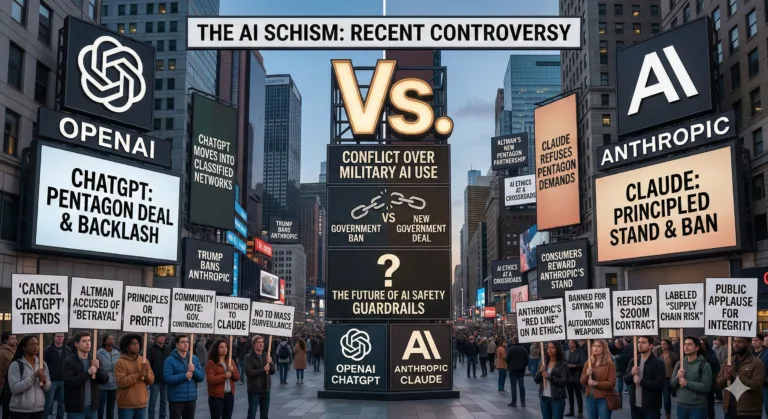Key Insights
- Meta laid off 600 employees from its Superintelligence Labs on October 22, 2025, with the Bay Area and Seattle hit hardest.
- The move is part of a major strategic overhaul—not a retreat from AI—aimed at focusing on high-impact teams and streamlining operations.
- Layoffs affected top-tier AI researchers, product managers, and engineers, even after a summer of aggressive AI hiring and investment.
Just after months of going on a hiring spree ,Meta’s recent move to lay off 600 employees from its AI Superintelligence Labs has caught everyone’s attention and sparked plenty of debate in the tech world. The majority of cuts impacted teams in the San Francisco Bay Area (318 jobs) and Seattle region (101 roles), touching AI researchers, product managers, software engineers, and data scientists. Puget Sound Business Journal and SFGate both highlight the regional disruption, underscoring how deeply these changes ripple through local tech job markets.
Why did Meta lay-off these employees from the Meta Super Intelligence Team ?

The layoffs are the culmination of a six-month strategic overhaul. Earlier in 2025, after the company’s Llama 4 AI model received a lukewarm reception, CEO Mark Zuckerberg pushed for a dramatic pivot. In the summer, Meta invested $14.3 billion in Scale AI and hired its CEO, Alexandr Wang, as Chief AI Officer, launching a massive hiring spree for elite AI talent with unprecedented compensation packages. These recruits formed the foundation of the new Meta Superintelligence Labs (MSL) under Wang’s leadership. By late August, Meta froze all AI hiring to “plan organizational structure,” and the October layoffs were the final step in this reorganization—not just cost-cutting, but a decisive effort to focus on lean, high-performing teams. Maximilian-Schwarzmueller.com provides a detailed timeline of this strategic pivot.
Employee and public reaction to Meta’s layoffs
Employee and public reaction to Meta’s layoffs has been mixed. Many see irony in the company cutting AI jobs amid a wider tech hiring boom for AI specialists. Some laid-off employees, including those with recent positive performance reviews, have voiced frustration on X.com.
I was impacted by Meta layoffs today.
As a Research Scientist working on LLM posttraining (reward models, DPO/GRPO) & automated evaluation pipelines, I’ve focused on understanding why/wehere models fail & how to make them better.
I’m looking for opportunities; please reach out! https://t.co/EyZJdNlZE6
— Mimansa Jaiswal (@MimansaJ) October 22, 2025
I was impacted by the Meta PAR/FAIR layoffs today.
I’m a research scientist passionate about computer vision, generative models, multimodal understanding, and AI safety. Over the past decade, I’ve contributed to advancing a broad range of applied machine learning problems — from… https://t.co/xt2Hzx6UNV
— Mariya I. Vasileva (@mariyaivasileva) October 23, 2025
Local media reports highlight the impact on the Bay Area and Seattle’s tech communities, as displaced workers look for new opportunities in an already competitive market.
Meta leadership states that most affected employees will be supported in finding new roles within the company, though the scale and abruptness of the cuts have prompted skepticism. The broader industry sees this as a sign of aggressive corporate streamlining, with Meta betting on smaller, more agile teams to regain its edge in the AI race against rivals like OpenAI and Google.
“This isn’t a sign that Meta is backing away from AI. Instead, it’s a radical, high-stakes pivot in strategy.” — Maximilian-Schwarzmueller.com
What Does This Mean for Workers and Meta?
Meta’s story shows that even important jobs in AI are not always safe—even with lots of excitement and investment around artificial intelligence. The company believes leaner teams can get things done with less delay, and that being able to adapt quickly matters more than big team sizes or fancy titles. Industry experts see Meta’s strategy as part of a bigger trend: tech giants hired many people when AI was booming, but now want to be smarter by keeping only the best and most relevant workers to stay competitive.
These changes remind those working in tech that learning useful skills, staying updated with the latest AI tools, and being able to show clear results are more important than ever. For Meta, the plan is to move faster, spend smart, and focus on ideas that bring real progress to customers—not just big teams or publicity.
What’s next for Meta AI?
The company’s new Superintelligence Labs, under Wang’s leadership, are expected to double down on foundational AI research and high-impact projects, with fewer but more focused teams. This restructuring reflects a broader trend in tech: intense investment in artificial intelligence, but with a new emphasis on performance, efficiency, and rapid innovation.
For ongoing analysis and real-time tech news discussion, join the WireUnwired Research WhatsApp group or our WireUnwired Research LinkedIn community.
Discover more from WireUnwired Research
Subscribe to get the latest posts sent to your email.



